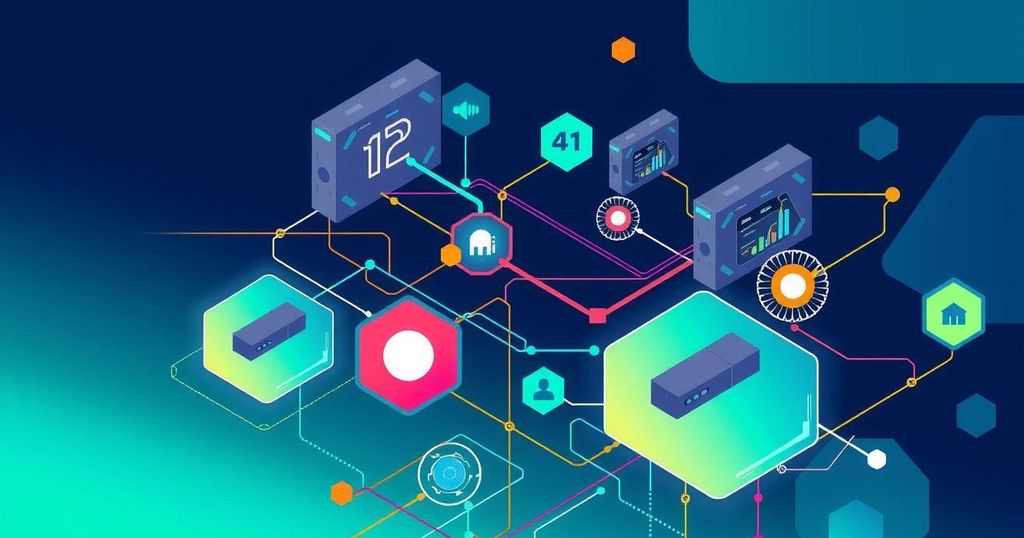What Is Agentic AI? Everything to Know About Artificial Intelligence Agents
Agentic AI is an evolving technology that enables artificial intelligence to make independent decisions and take actions without constant user input. It distinguishes itself from traditional AI tools by proactively tackling complex tasks through reasoning and planning. Although widespread integration across various sectors may take time, its benefits — such as efficiency, improved customer experience, and reduced errors — are already being recognized. However, questions of trust and accountability remain paramount as these systems gain autonomy.
There’s a new buzzword in the world of technology: agentic AI. Sure, you’ve heard about tools like ChatGPT and Google’s Gemini, but this one is different—and not just another fad. Thanks to recent advancements, building and engaging with AI agents has become significantly simpler. For instance, if you’re a Pro subscriber to Perplexity in the US, you may have already encountered the “Buy with Pro” feature, which automates shopping by processing preferences and payments right under your nose.
Experts are urging us to take stock of the capabilities of these AI agents. It might be a slow burn until fully immersive applications emerge, but these systems are poised to change the landscape across various sectors. Unlike conventional chatbots requiring hands-on prompts, agentic AI can parse complex goals into smaller, doable tasks, operating autonomously and efficiently in their environment.
Imagine a world where instead of just answering your queries, AI takes the reins to accomplish tasks. This ability to assess situations and execute actions without needing constant nudges is what sets agentic AI apart from its predecessors. They’re not just waiting as passive entities; they sense their surroundings, reflect on what they observe, and take action as needed.
Peter Stone, a professor from the University of Texas, highlighted this shift: “Agentic AI…is now making this sort of sense-decide-act loop available to everybody,” giving more power to users looking for efficiency. Meanwhile, Ankur Patel, CEO of Multimodal, elaborated on how these systems can even streamline hefty tasks like underwriting by handling data from vast sources seamlessly.
Agentic AI isn’t simply automation. It connects various data streams using predefined rules, producing swift, accurate outputs that humans could spend hours fetching. One clear distinction from generative AI and chatbots is that agentic AI not only handles requests but builds strategies to address issues proactively. Picture this: while a generative AI might draft your vacation plans, an AI agent would coordinate booking flights, reserving hotels, and adjusting all details if your flight goes sideways.
But what does this all mean for the workplace? The question looms over many: will AI take jobs or help enhance them? Stone suggests it’s a mix—a shift many faced similar to moving from hand-washing to using dishwashers in restaurants. Automation replaces repetitive tasks, allowing workers to focus on more complex problems leaping from that old-fashioned model.
New capabilities are emerging in numerous industries, from autonomous robots in manufacturing to AI in banking streamlining loan approvals. Even consumer products are picking up on these trends, with browsers like Opera and Google’s AI Mode aiming to make our everyday tasks smoother. Patel emphasized three key benefits for users: saving time, improving customer experiences, and reducing human error.
However, agentic AI isn’t without drawback. They’re not always reliable in unstructured or unpredictable contexts. Their effectiveness hinges heavily on the input they receive. If the goals aren’t clear, the results can be far from ideal. And with increasing autonomy comes risk. What happens when an AI makes a decision that leads to failure? The accountability question is a murky one.
Stone echoed this concern, pointing out the real-world implications of autonomous actions—where a miscalculation by an AI could lead to actual harm. Risks depend on what the AI controls, and letting it handle sensitive tasks without oversight can pose challenges. Patel added that mechanisms like detailed logs and audit trails are vital in upholding trust and accountability in these systems.
In the face of rising excitement around agentic AI, don’t expect it to take over the world overnight. Most systems will take years to adapt to specific industries. Stone warned about the danger of expecting perfection, noting that embracing mistakes may pave the way for better performance over time. We are transitioning to a realm where AI no longer just chats but actually completes tasks—it’s a pivotal moment in technology.
Agentic AI represents a major leap forward in how artificial intelligence can interact and operate independently. By transforming from tools that merely respond into proactive agents capable of complex decision-making, they hold promise across industries, potentially saving time and improving efficiency. While concerns about job displacement and accountability persist, the landscape of AI continues to evolve, inviting us to rethink our relationship with technology. Expect a gradual integration of these capabilities into everyday life as we move into this new frontier.
Original Source: www.cnet.com




